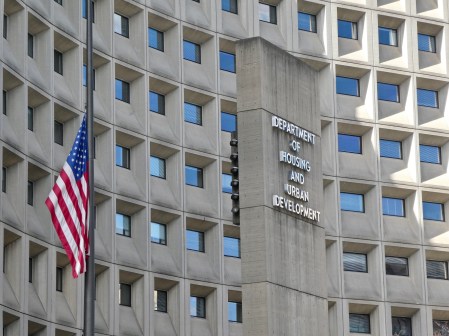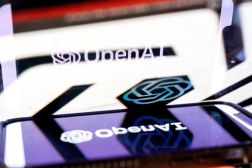- Exclusive
- AI
NASA cautiously tests OpenAI software for summarization and code writing

NASA is cautiously testing OpenAI software with a range of applications in mind, including code-writing assistance and research summarization. Dozens of employees are participating in the effort, which also involves using Microsoft’s Azure cloud system to study the technology in a secure environment, FedScoop has learned.
The space agency says it’s taking precautions as it looks to examine possible uses for generative artificial intelligence. Employees looking to evaluate the technology are only invited to join NASA’s generative AI trial if their tests involve “public, non-sensitive data,” Edward McLarney, digital transformation lead for Artificial Intelligence and Machine Learning at the agency, told FedScoop.
In June, Microsoft announced a new Azure OpenAI tool designed for the government, which according to the company is more secure than the commercial version of the software. Last week, FedScoop reported that the Microsoft Azure OpenAI was approved for use on sensitive government systems. A representative for Microsoft Azure referred to NASA in response to a request for comment. OpenAI did not respond to a request for comment by the time of publication.
Experimentation with the technology has just begun, McLarney noted, and “many iterations” of testing, verification, validation, bias mitigation, and safety reviews, among other types of evaluations, are still ahead.
“NASA workers are assessing usability of the tools, accuracy of the results, completeness of AI-generated outputs, security behavior of the overall cloud services, speed of the models, costs, supportability and more,” McLarney said. “NASA is excited about the potential of generative AI and is also being clear-eyed about its risks and shortcomings.”
He added: “NASA also uses cloud services from other companies and is interested in testing generative AI capabilities from them. NASA may conduct additional generative AI testing with Google Cloud Platform, Amazon Web Services, or other companies in the future.”
Right now, the space agency plans to study OpenAI’s chat, code assistance capabilities, and image-generating capabilities. AI-generated art could help provide “inspiration” for NASA artists, McLarnley explained, while the system’s text-generating software could help with writing documents. He pointed to other use cases, too.
FedScoop learned about NASA’s generative AI tests after receiving a list of employees titled “Initial NASA OpenAI on Azure Testers” in response to a public records request. Last month, FedScoop obtained an email — which was sent by NASA’s chief information officer to employees in May — focused on preliminary guidance for using AI tools like ChatGPT. That email noted that some “early adopters” within the agency were preliminarily working with the technology.
Notably, the space agency’s generative AI testing had not begun when NASA began collecting its fiscal year 2023 AI use case inventory, which was required by a 2020 Trump administration executive order. Still, McLarney noted that as “NASA generative AI testing and nascent use begins, it will be included as appropriate in future AI inventory reporting cycles.”
NASA’s experimentation with OpenAI software is just one part of the agency’s growing focus on AI. Officials also released a Responsible AI plan last September — and artificial intelligence and machine learning remain an element of the agency’s digital transformation efforts.
The agency is one of the first government departments to disclose details of its approach to experimentation with OpenAI. The use of generative AI tools can raise privacy, trust and oversight, and national security concerns, as a Government Accountability Office brief from June highlighted. Relatedly, the Department of Transportation recently deleted a reference to using ChatGPT from its AI use inventory, in response to FedScoop’s reporting.






